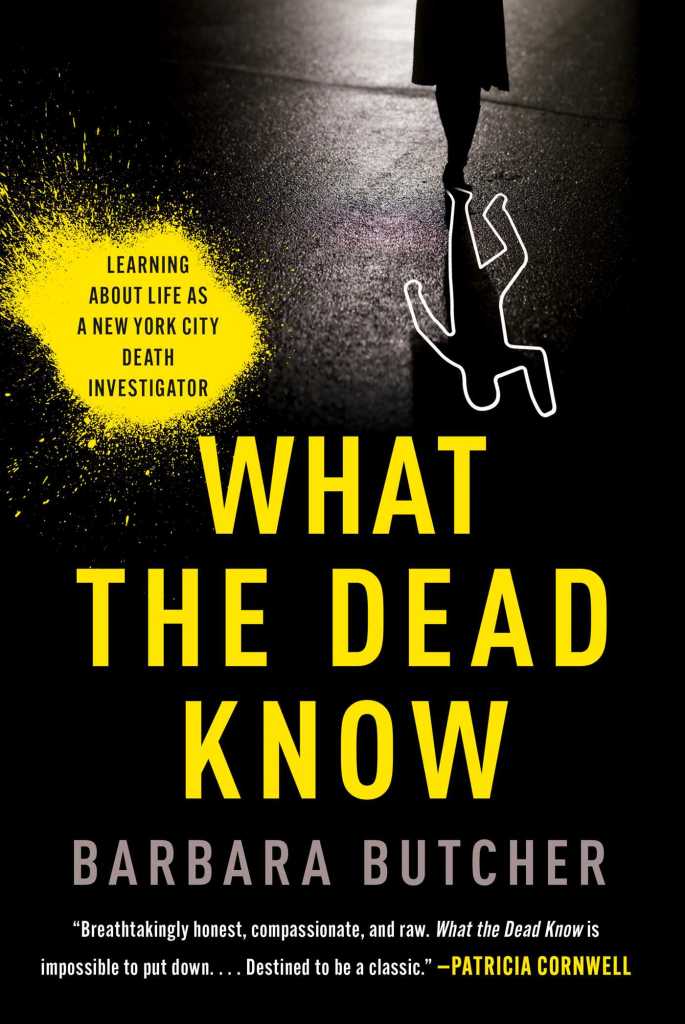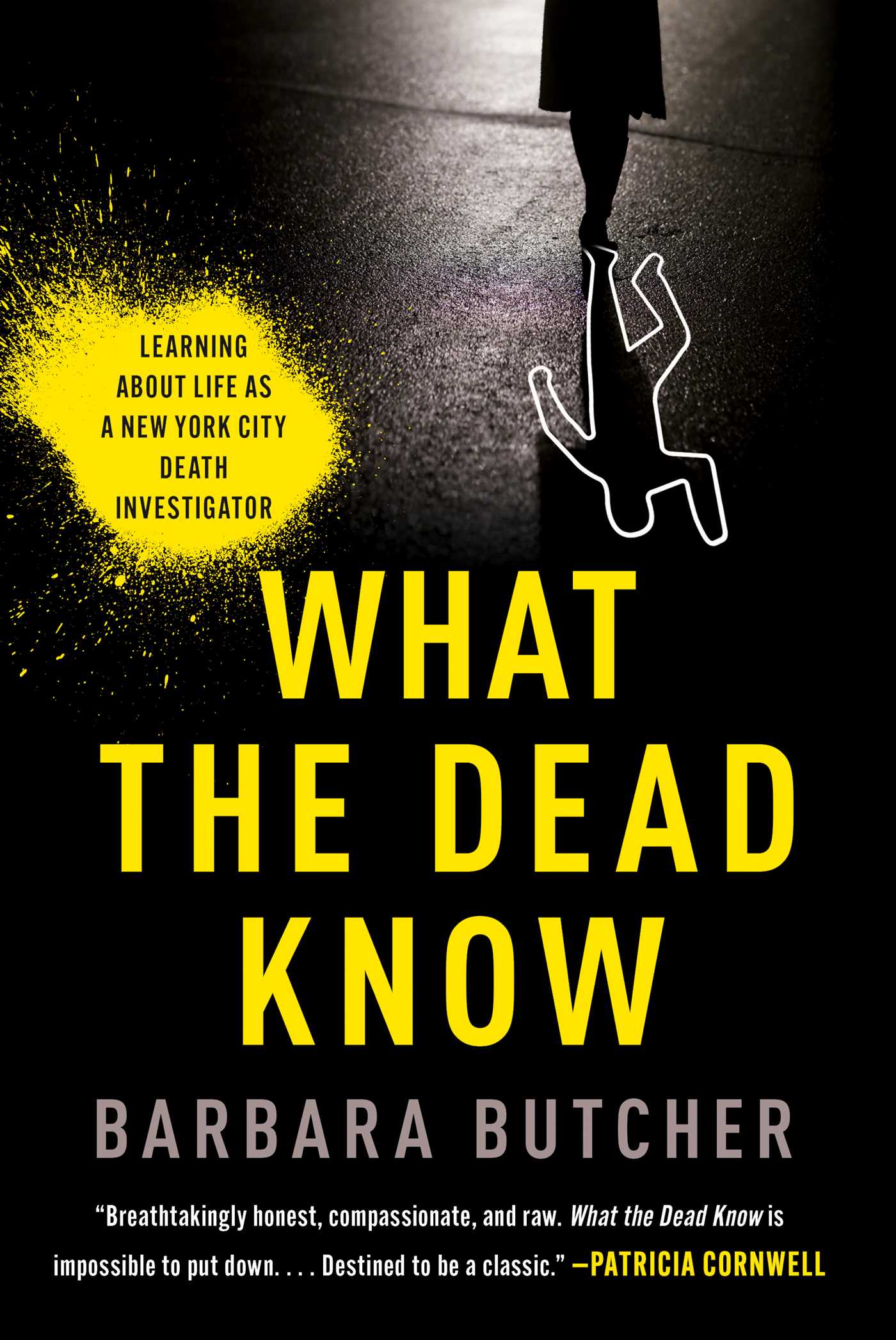A quick round of channel(streaming service?)-surfing will give you any number of shows about murder and what happens when a body shows up in some inconvenient place. Given the number of classic stories that revolve around death, it doesn’t seem like a stretch to wonder if this is a topic that fascinates us humans on a fundamental level. But the mechanics of how death is dealt within reality are a little fuzzier than what entertainment makes it out to be. Maybe that’s why Barbara Butcher’s memoir What the Dead Know: Learning About Life as a New York City Death Investigator is so fascinating, like some illicit look to a world we don’t usually see. Beyond the lurid subject matter, it’s also a surprisingly poignant look at a subject we might like as entertainment but are often loath to talk about in a serious way.
Butcher wasn’t looking for a job, exactly, when she walked into the office of the chief medical examiner of New York City, but a new direction from the rock bottom she’d found in the depths of her alcoholism. But her background as a physician’s assistant and her unflappable temperament immediately revealed her to be a good candidate for an opening in the office. Butcher soon proved herself time and time again, not just to her colleagues, but to herself, as well. At the same time, she encountered death on a daily basis. While death clearly comes with the territory, the way it wears on her off the clock was less expected. So is the way that working with death makes her reflect on life.

There’s the anger she sees in a man who ends his life in such a way that he’d take out any first responder who came to his rescue—or retrieved his body, or in the overlooked colleague who makes an attempt on her life near where the team would see the depths of her pain, both prompting reflection of the ways anger and sadness and loneliness can be intermingled. There’s the substance abuse deaths and other evidences of addiction that hit too close to home with her identity as a recovering alcoholic. The murders that warn that danger could be lurking around the corner, or in the next room. Yet even as the burden to Butcher’s life grows ever heavier in her two decades as a medical examiner, her reflections don’t carry that same weight.
Although many of her reflections carry precise detail, it’s obvious that she has written them down here from a distance that has allowed her to see the silver lining. There’s a sense of peace and connectivity that seems impossible to have made on the outset, and the delay has made for a more consumable story for the average reader. Not that anyone sits together and sings Kumbaya in these pages; What the Dead Know is about a lot of difficult stuff, and Butcher doesn’t shield us from the gore. But she does wisely keep it to a level the average Bones viewer would find comfortable. (The dark humor—that might be familiar for the Bones fans, too, but it may seem a little jarring to some who haven’t brushed with the first responder world.) Her recollection of responding to 9/11, too, is emotionally fraught but tastefully select in its details, delivering realness without exploitation.
There’s a sense of realness in this memoir that I appreciated. Some of the sentences are a little clunky; some of the descriptions don’t “sing.” These little literary hangups give it authenticity you can’t get with a ghostwriter, as useful as those folks are for telling the stories of people who might not have the time, inclination, or skill to write it themselves. Butcher herself is a more than adequate writer, and the stories flow well with each other to make a solid work. It’s also a work that feels like a snapshot into an extraordinary time of life, a pulled-back curtain on unsung professionals performing a difficult but necessary job.
